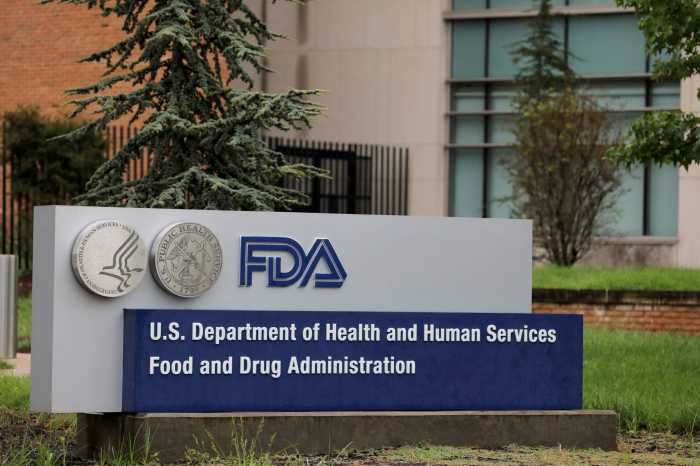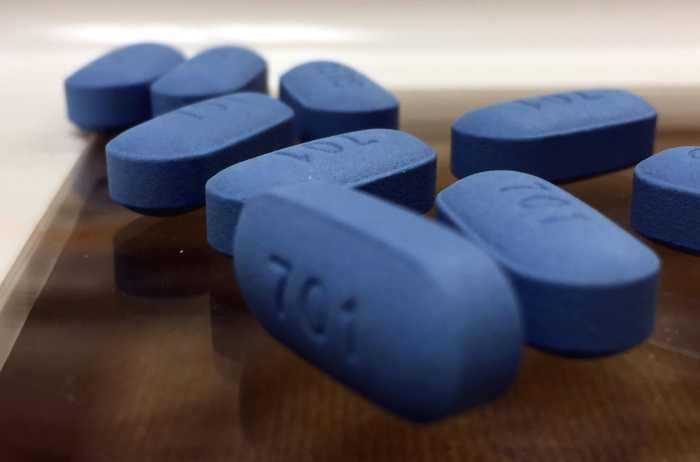The US Food and Drug Administration (FDA) is moving to allow select monogamous gay men to donate blood, but some ongoing restrictions will continue to disproportionately impact men who have sex with men and other individuals who have anal sex or take PrEP.
The FDA released new draft guidance calling for all prospective blood donors to fill out a questionnaire asking whether they have had new or multiple sex partners in the last three months. Those who answer in the affirmative would then be asked if they have had anal sex in the last three months. If so, they would be deferred from donating.
However, HIV-negative people who have multiple sex partners and engage only in vaginal sex would be eligible to donate blood.
“That has to do with the risk of exchanging blood that goes with vaginal intercourse vs. anal intercourse,” Dr. Peter Marks, director of the FDA’s Center for Biologics Evaluation and Research, said in a response to a question from Gay City News during a January 27 press conference.
People living with HIV will continue to be banned from donating blood. Last year, the American Red Cross said it was in the midst of its worst blood shortage in more than a decade after witnessing a 10% drop in blood donations since the beginning of the pandemic.
The country’s blood donation policy was originally implemented in 1983 when the FDA imposed a lifetime ban on men having sex with men from donating blood in the midst of the HIV/AIDS crisis. The policy was revised in 2015 to a 12-month deferral period, and then to a three-month deferral period beginning in April of 2020.
The FDA is defending the latest version of the policy by advancing the argument that the guidance is rooted in science and removes gender-specific barriers following years of policies explicitly barring men who have sex with men from donating blood.
But the new policy will undoubtedly continue to affect men who have sex with men, transgender individuals, and others. Furthermore, people who take the HIV prevention medication known as PrEP or PEP would also be restricted from donating: Those who take injectable PrEP would face a two-year deferral period, while people taking oral PrEP would be deferred for three months.
The FDA insists the PrEP-related restrictions are due to data showing that PrEP/PEP may delay detection of HIV in blood screening. Blood screening, meanwhile, has become extremely effective with technology like the Nucleic Acid Test.
“It’s a double standard,” out gay State Senator Brad Hoylman-Sigal of Manhattan told Gay City News after the policy was released. “I’m concerned that it stigmatizes men who have sex with men.”
Kenyon Farrow, a writer and activist with extensive experience working in public health, said the FDA’s new policy is, “in a word, bullshit.”
Describing it as “complete nonsense,” Farrow questioned why the government is making the ability to donate blood continent upon monogamy if regulators are only evaluating answers on a questionnaire.
“If you screen for HIV, viral hepatitis, and other blood-borne pathogens in the blood supply, as we do in this country, why that is not sufficient enough for gay men suggests that the agency is still sort of showing homophobia,” Farrow said in an interview with Gay City News.
Farrow has first-hand experience with the FDA’s discriminatory policy. He was a recent college graduate in 1997 when his father was diagnosed with leukemia. Members of the family were asked to donate blood, but Farrow was denied the opportunity to help his father because he told a nurse that he was gay. His father died months later.
“This issue is near and dear to my heart,” said Farrow, who further slammed the FDA for “giving mixed messages about PrEP efficacy” by encouraging people at risk to utilize PrEP while also warning potential donors that they cannot give blood if they’re taking HIV prevention medication.
The FDA’s latest announcement follows the completion of the ADVANCE Study, which evaluated HIV risk factors like anal sex, HIV infection rates, and PrEP/PEP use among men who have sex with men. The study was conducted to justify further changes to blood donation policy.
President Joe Biden has been open to changing the FDA’s oft-criticized blood donation policy, but he believes changes should be backed by scientific research, according to Congressmember Ritchie Torres, who discussed the issue during an in-person meeting with the president last year.
“Even though the president was sympathetic to my message, he was also deferential to the process of the FDA and he is loath to intervene,” Torres said last April.
The Congressional Equality Caucus, which includes Torres, had a mixed reaction to the FDA’s new policy. Mark Pocan, chair of the Congressional Equality Caucus, said it was an “important step forward” but said he and his colleagues “recognize, based on existing reporting, that many LGBTQI+ people may still be barred from donating.”
“I look forward to taking a closer look at the proposed guidelines once they are published and working with the FDA to ensure that any unnecessary barriers are removed,” Pocan said in a written statement on behalf of the Congressional Equality Caucus.
FDA officials said on January 27 that the government would continue to evaluate the policy and could make additional changes if warranted.
The proposed policy will be open for comment for 30 days before changes are finalized with blood collection establishments, according to the FDA.


































